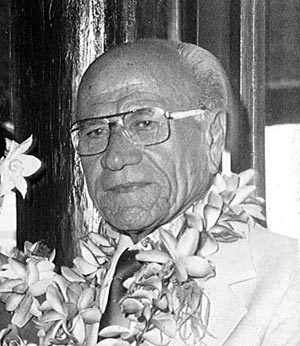Niue - a brief history
Niue was settled more than a thousand years ago by voyagers from eastern Polynesia. A second migration is said to have happened in the 16th century when a war party from Tonga took control of the island, leading to extended hostilities. Two centuries later, in 1774, Captain James Cook called Niue ‘The Savage Island’ after several attempts to land were met with a rather hostile reception.
Missionaries visited Niue from 1830 onwards and Christianity was gradually accepted bringing an end to the internal wars. In 1849 the first parliament, or fono, was established. The first Niuean king, Mataio Tuitoga, was elected in 1875 and reigned until 1887. His successor, King Fataaiki requested protectorate status under Britain and after several approaches, London agreed to declare Niue a British protectorate in 1900. A year later it was annexed to New Zealand as part of the Cook Islands.
New Zealand administration
In 1904, a separate Niue administration was set up and by 1960 a Legislative Assembly had been established. Its leader was Robert Rex, the son of a Niuean mother with royal connections and an immigrant English lawyer.
Niue became self-governing in 1974, although the island's free association status is still evolving. Robert Rex was elected first premier in 1975 and continued in office until his death in 1992.
Modern Niue
A full member of the Pacific Islands Forum, Niue was a founding member of the Forum's Small Island States group (Cook Islands, Kiribati, Marshall Islands, Nauru, Niue and Tuvalu).
Tourism, one of the country's few economic resources, attracts some investment and revenue, but aid from New Zealand, guaranteed by law to continue, is the mainstay of the economy.
Problem of a declining population
The population has steadily declined. In the 1950s the population was over 5,000. Following self-government in 1974, Niueans retained New Zealand citizenship and the right to migrate to New Zealand. Former Premier Young Vivian estimates that some 25,000 Niueans now live in New Zealand with fewer than 1400 remaing on the island.
As its people have moved away, there have been suggestions Niue may need to consider moving more closely into New Zealand's orbit to access the range of services Niueans now consider essential. As Young Vivian underlines here, such a step would be a disappointment to the many Niueans who have worked for a more independent homeland.
Niue does have ample space. The land area of its single island (259 square kilometres) is greater than that of all 15 Cook Islands (238 square kilometres). But immigrants brought to Niue to increase the population tend to move to New Zealand and beyond once they have gained citizenship.
Niue’s future may be tied to a possible future rationalisation of travel and residence entitlements throughout the region including New Zealand and Australia.
Significant events since independence
1979 Serious hurricane strikes Niue
1989 Cyclone Ofa strikes, causing serious damage
1992 Sir Robert Rex dies after serving as Niue’s first Premier 1975–1992.
2004 Cyclone Heta, one of the strongest hurricanes ever to strike Niue, causes immense damage
2004 New Zealand’s Foreign Minister Phil Goff speculates that Niue’s self-governing status in free association with New Zealand might come into question if too few residents live on the island for basic services to be maintained. Soon afterwards, Niue’s then Premier, Hon. Young Vivian, rejects the possibility of altering the existing relationship with New Zealand
2006 Smaller Island States Unit established at the Pacific Islands Forum Secretariat, Suva, to serve the Cook Islands, Kiribati, Marshall Islands, Nauru, Niue, Palau and Tuvalu
2008 Lonely Planet says Niue’s population has fallen to about 1300.

Young Vivian

Sir Robert Rex